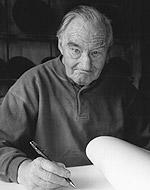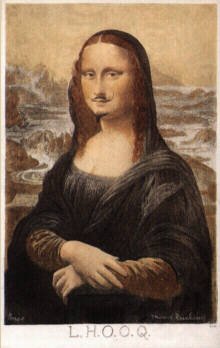Peter Benenson : The man who decided it was time for a change

The man who decided it was time for a change
The man who lit the fuse of the human rights revolution died this week, having refused all honours and leaving behind him a world changed by the countless protests and petitions he championedPeter Benenson, the founder of Amnesty International, was 83. He was born into a world without the United Nations. Not a single international human rights treaty was in existence. The Universal Declaration of Human Rights had yet to be written. There wasn’t a single one of today’s major human rights organizations on the political landscape. Civil society was yet to be born.Inordinately modest and self-effacing, the one-time lawyer who launched Amnesty International in 1961 would never claim credit for the sea-change of the last 40 years. He was offered knighthoods by almost every successive British Prime Minister but he never accepted.Each Prime Minister who wrote to him received a personal response from Benenson - who typed his own letters until late in life -- in which he would cite the current human rights violations Amnesty was confronting in the UK. He would suggest, without mincing his words, that if the government wished to take account of his work for human rights, what mattered was to redress those abuses.In comparison with the world into which he was born, Benenson left behind him one changed so fundamentally that it is hard to conceive of the scale of the transformation. Nearly a hundred human rights treaties and other legal instruments are now in force internationally. Over ninety percent of the world’s countries are now party to the most comprehensive of these, the twin international covenants on civil/political and economic/social rights. Almost all of those states have now formally given the right to their citizens to make international complaints.In addition to the human rights bodies of the United Nations, there are now regional intergovernmental bodies covering up to three-quarters of the world’s nations.Women’s rights, child rights, minority rights, workers’ rights, the rights of disabled persons - all of these have been codified and strengthened by successive declarations, conventions and acts of national legislation. Torturers have become international outlaws. As we enter the 21st Century, more than half the countries of the world have rejected the death penalty - either by abolishing it altogether or ceasing to carry out executions.However, the most extraordinary phenomenon - and the one on which Peter Benenson left his indelible mark - is the birth of what has come to be known globally as "civil society". Today there are well over a thousand domestic and regional organizations working to protect human rights. Among them, his brainchild Amnesty International, is one of the best known, with almost 2 million members, subscribers and supporters in more than 64 countries and territories.But to think of Peter Benenson merely as the founder of one organization (indeed he started several others) is to misread perhaps the single most distinctive political feature of the period from the end of the Second World War to the present: the emergence of organized, non-violent public opinion as an increasingly powerful force in domestic and international politics. Historians may locate its origins in any number of social changes following the war. But there is one event that will incontestably be told and retold in any social history of that period.It is the story of a man in a bowler hat reading his newspaper on the London underground in late 1960. He reads a small item about two Portuguese students being sentenced to seven years’ imprisonment for raising their glasses in a toast to freedom. He is outraged, decides to go to the Portuguese embassy in London to make a personal protest and then changes his mind. Instead he gets off at Trafalgar Square station and makes his way to the church of St Martin’s-in-the-Fields. He goes in, sits down for three-quarters of an hour, and thinks.In his words, "I went in to see what could really be done effectively, to mobilize world opinion. It was necessary to think of a larger group which would harness the enthusiasm of people all over the world who were anxious to see a wider respect for human rights."That man was Peter Benenson, then a barrister in London. When he came outside into the square, he had his idea. Within months, he launched his Appeal for Amnesty with a front page article in The Observer newspaper.Nothing quite like it had ever been attempted on such a scale before. The response was overwhelming, as if people worldwide were waiting for exactly such a signal. Newspapers in over a dozen countries picked up the appeal. Over a thousand letters poured in within the first six months. And the post-bags of the world’s heads of state changed forever.Benenson’s idea was so simple, perhaps that’s why he remained so shy of personal publicity throughout his life. Termed "one of the larger lunacies of our time" by one of its critics, a network of letter writers was set up to bombard governments with individual appeals on behalf of prisoners jailed and ill-treated in violation of the Universal Declaration of Human Rights.In an age of self-aggrandisement, his modesty was almost hard to fathom. He never went forward to receive the numerous accolades showered upon Amnesty, known universally by its candle in barbed wire. His mind was always fixed on what had not been accomplished and the countless victims still to be rescued."The candle burns not for us," he declared, "but for all those whom we failed to rescue from prison, who were shot on the way to prison, who were tortured, who were kidnapped, who ‘disappeared’. That is what the candle is for."In later years, as Amnesty’s impact grew exponentially and went on to harness the power of the international news media, other groups began to adopt and adapt its methods in support of their causes. The extraordinary impact of the environmental movement twenty years later, the women’s rights movement and a host of other single-issue and coalition groups, working in their own countries or across national boundaries, can often be traced to the early examination they made of the methods Benenson’s organization was using.Today we take the power of charities, voluntary groups and people’s campaigns for granted. But before that day in Trafalgar Square - the day on which a single newspaper reader decided it was time for a change - that power had yet to shake the world. Nothing has ever been quite the same since. As he said in 1961, lighting the first Amnesty candle, "I’m reminded of the words of a 16th century man sentenced to death by burning: We have today lit such a candle as shall never be put out."--------------------------------------------------------------------------------------------------------Peter Benenson, 31 July 1921 - 25 February 2005, was the founder of Amnesty International
Richard Reoch, former head of public information at the organization’s International Secretariat, worked and travelled with Benenson in his later years



0 Comments:
Posta un commento
<< Home